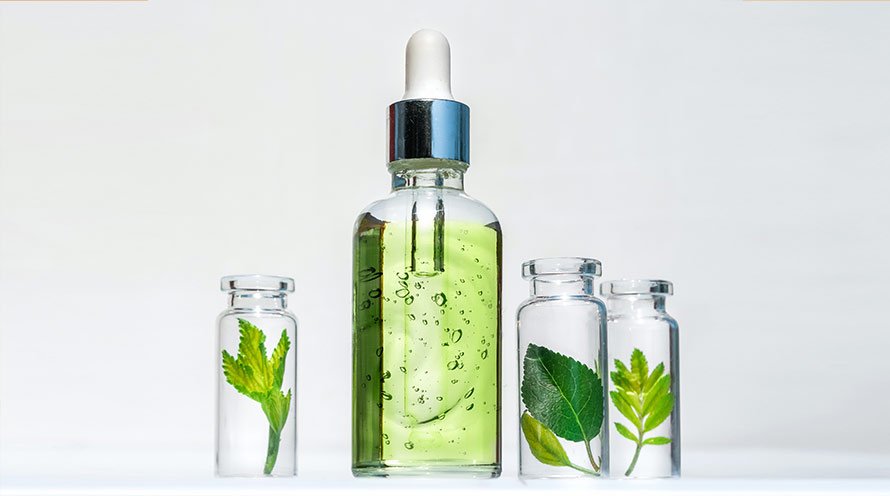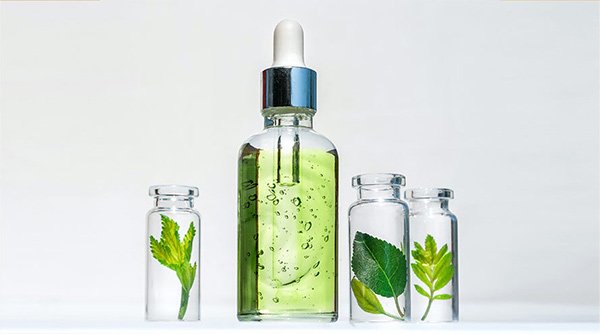Types Of Vitamin C: How To Pick The Right One For You
Vitamin C is undoubtedly an essential active ingredient for skincare enthusiasts around the world. After all, who can stay away from the goodness of L-Ascorbic Acid or MAP, right? Wait! MAP? What is MAP and how are we hearing about this new ingredient only now? Well, MAP, L-Ascorbic acid, and more, are basically the various types of the good ‘ol vitamin C. Read on as we discuss all of them in detail and help you pick the right one for you.
What are the different types of vitamin C?
- L-Ascorbic Acid - Potent and popular, it boosts collagen and repairs skin.
- Ethyl Ascorbic Acid - This oil-soluble type brightens skin and fades dark spots.
- Ascorbyl Palmitate - This stable variant is used for creams and barrier-rich skincare.
- Magnesium Ascorbyl Phosphate (MAP) - It ideal for sensitive skin and dullness.
- Ascorbyl Glucoside - It brightens skin tone and is used in masks.
- Sodium Ascorbyl Phosphate (SAP) - With anti-inflammatory benefits, it is ideal for acne-prone skin.
- Tetrahexyldecyl Ascorbate - Deeply penetrating form of vitamin C helps tackle ageing signs and UV damage.
What Are The Different Types of Vitamin C?
Vitamin C is a vital component in most skincare products. It can neutralise free radicals, stimulate collagen synthesis, and brighten the complexion. But did you know that it actually comes in various forms? These different forms or types of vitamin C are essentially the ways in which this skin-active has been derived. Each one offers different benefits, potency, and stability.
In this section, we’ll discuss in detail about the different types of vitamin C and products enriched with vitamin C, so that you can make informed decisions while incorporating in your skincare regimen.
What are the Types of Vitamin C in Skincare?
L-Ascorbic Acid:
L-ascorbic acid is the most common type of vitamin C used in skincare. It is a highly potent type that effectively neutralises free radicals, promoting collagen production and skin repair. L-ascorbic acid can be found in serums, creams, and lotions, and remains the gold standard among the types of vitamin C in skincare.
Ethyl Ascorbic Acid:
Ethyl ascorbic acid is a stable type of vitamin C that is oil-soluble and easily absorbed by the skin. It is effective in brightening the skin tone and reducing the appearance of dark spots and acne marks. It is among the more stable types of vitamin C in skincare.
Ascorbyl Palmitate:
Ascorbyl palmitate is a fat-soluble type of vitamin C. It is less potent than L-ascorbic acid but offers better stability, making it suitable for products like creams and lotions. Ascorbyl palmitate can penetrate the skin's lipid barrier, providing antioxidant benefits and supporting collagen synthesis. It’s one of the different types of vitamin C preferred in moisturising formulas.
Magnesium Ascorbyl Phosphate (MAP):
Magnesium Ascorbyl Phosphate is another stable and water-soluble form of vitamin C. It is gentler on the skin than L-ascorbic acid and works well for individuals with sensitive skin. MAP can help reduce hyperpigmentation and improve skin elasticity. Among the types of vitamin C in skincare, MAP is often found in products for sensitive skin.
Ascorbyl Glucoside:
Ascorbyl glucoside is a stable type of vitamin C in skincare that converts to L-ascorbic acid upon skin contact. It is less irritating and can be suitable for people with sensitive skin. It works well for brightening the skin tone and addressing hyperpigmentation issues. You can try the vitamin C serum sheet masks that are infused with Ascorbyl glucoside. It’s one of the different types of vitamin C that works effectively for quick-acting masks.
Sodium Ascorbyl Phosphate (SAP):
SAP is a water-soluble and stable type of vitamin C. It has antioxidant properties and is effective in promoting collagen synthesis. Additionally, SAP has been found to have anti-inflammatory effects, making vitamin C uses suitable for acne-prone skin.
Tetrahexyldecyl Ascorbate:
This oil-soluble form of vitamin C in skincare is stable and readily penetrates the skin. It is known for its ability to brighten the skin, reduce the appearance of fine lines and wrinkles, and protect against UV-induced damage. Among the different forms of vitamin C, this one is ideal for those who prefer oil-based skincare.
Try to complement these serums with vitamin C-rich foods to nourish your skin from within as well.
Forms of Vitamin C in Skincare Products
Vitamin C Face Wash
Vitamin C face wash is an excellent way to incorporate this ingredient into your daily cleansing routine. These cleansers usually contain a type of vitamin C, such as ascorbyl glucoside or magnesium ascorbyl phosphate. They effectively remove impurities while delivering antioxidant protection to the skin. You can try a vitamin C face wash that deeply cleanses and eliminates dirt, dust, and impurities from your skin.
Vitamin C Serums
Vitamin C serums predominantly have stable acids like L-ascorbic acid and Ethyl Ascorbic Acid. Serums offer a lightweight and easily absorbable texture, allowing the active ingredient to penetrate deep into the skin. They can help combat free radicals, promote collagen synthesis, and fade hyperpigmentation, revealing a more even-toned and youthful complexion. Try using a vitamin C serum and pair it with vitamin C at night to complement your glow with skin repair.
Vitamin C Moisturisers
Vitamin C-infused moisturisers combine hydration with the antioxidant benefits of vitamin C. Ascorbyl palmitate or sodium ascorbyl phosphate are commonly used types of vitamin C in these products. Moisturisers provide long-lasting hydration while protecting the skin from environmental stressors. They can help improve skin texture, reduce the appearance of fine lines and wrinkles, and impart a healthy glow. Try vitamin C face creams with added UV protection that keep away dark spots while also adding hydration to your skin.
Vitamin C Sheet Masks
Sheet masks offer an intensive treatment to revitalise the skin in a short span of time. A vitamin C sheet mask contains a blend of different forms of vitamin C, such as ascorbic acid, polypeptide, or ethyl ascorbic acid, along with other beneficial ingredients. What’s more, they provide a concentrated dose of antioxidants, brighten the complexion, and promote a more youthful appearance. Regular use of vitamin C sheet masks can enhance skin radiance and improve the overall skin texture.
Vitamin C Sunscreens
While you’ve been told that vitamin C can make your skin sun-sensitive, using vitamin C-infused sunscreens may still be a good idea. Broad-spectrum formulas with SPF 50+ and PA++++ help you remain shielded from the sun while the vitamin C protects you from the oxidative stress caused by the UV rays. Try a lightweight, invisible sunscreen serum, sunscreen sprays, or cooling sunscreens with vitamin C to give your skin complete dark spot protection and an added punch of glow.
We know that vitamin C is now an essential ingredient in most skincare routines. And now that you know what is vitamin C, the types of vitamin C, and their varied benefits, select the right one to make it a part of your skincare routine. Browse through the wide range of Garnier skincare products and keep these skincare tips in mind to flaunt healthy, glowing skin.


